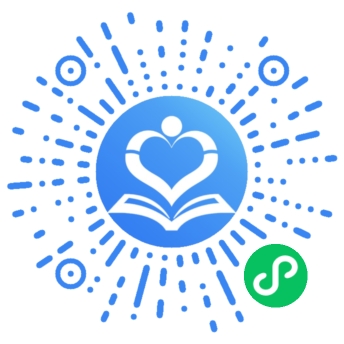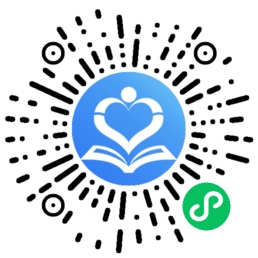中共党史专业介绍
中国共产党历史专业属于法学门类,政治学一级学科,该专业主要研究中国共产党的历史发展、理论政策与实践,探索中国共产党领导中国革命、建设、改革和党的建设的历史经验教训,揭示中国共产党执政规律、社会主义建设规律、人类社会发展规律。
英语单词分类 轻松记单词
start
英[stɑːt] 美[stɑːrt]
"it was off to a good start"
"they got an early start"
"she knew from the get-go that he was the man for her"
"he got his start because one of the regular pitchers was in the hospital"
"his starting meant that the coach thought he was one of their best linemen"
"he awoke with a start"
"he was responsible for the beginning of negotiations"
"the starting signal was a green light"
"the runners awaited the start"
"with an hour's start he will be hard to catch"
"We began working at dawn"
"Who will start?"
"Get working as soon as the sun rises!"
"The first tourists began to arrive in Cambodia"
"He began early in the day"
"Let's get down to work now"
"The U.S. started a war in the Middle East"
"The Iraqis began hostilities"
"begin a new chapter in your life"
"The family took off for Florida"
"The DMZ begins right over the hill"
"The second movement begins after the Allegro"
"Prices for these homes start at $250,000"
"He initiated a new program"
"start a foundation"
"Who started this company?"
"We embarked on an exciting enterprise"
"I start my day with a good breakfast"
"We began the new semester"
"The afternoon session begins at 4 PM"
"The blood shed started when the partisans launched a surprise attack"
"She startled when I walked into the room"
"We simply could not start the engine"
"start up the computer"
"I start at eight in the morning"
"Ready, set, go!"
"Take up a position"
"start a new job"
"The novel begins with a murder"
"My property begins with the three maple trees"
"Her day begins with a workout"
"The semester begins with a convocation ceremony"
"begin a cigar"
"She started the soup while it was still hot"
"We started physics in 10th grade"
"His eyes popped"
1.开始(做某事)
If youstart to do something, you do something that you were not doing before and you continue doing it.
e.g. John then unlocked the front door and I started to follow him up the stairs...
约翰接着打开前门,我开始跟他上楼。
e.g. It was 1956 when Susanna started the work on the garden...
苏珊娜是从 1956 年开始修建这个花园的。
2.(使)开始;(使)发生
When somethingstarts, or if someonestarts it, it takes place from a particular time.
e.g. The fire is thought to have started in an upstairs room...
火灾被认为是从楼上的一个房间里开始燃起的。
e.g. The Great War started in August of that year...
第一次世界大战于那年 8 月爆发。
3.(从…)开始;(从…)着手
If youstart by doing something, or if youstart with something, you do that thing first in a series of actions.
e.g. I started by asking how many day-care centers were located in the United States...
我一开始先问了问美国有多少所日托中心。
e.g. He started with a good holiday in Key West, Florida.
他先去佛罗里达的基韦斯特岛度了个愉快的假期。
4.第一份工作是…
You usestart to say what someone's first job was. For example, if their first job was that of a factory worker, you can say that theystarted as a factory worker.
e.g. Betty started as a shipping clerk at the clothes factory...
贝蒂的第一份工作是在服装厂里当运务员。
e.g. Grace Robertson started as a photographer with Picture Post in 1947.
格雷斯·罗伯逊于 1947 年参加工作,做了《图片邮报》杂志的一名摄影师。
5.开办;创办
When someonestarts something such as a new business, they create it or cause it to begin.
e.g. George Granger has started a health centre and I know he's looking for qualified staff...
乔治·格兰杰开办了一个保健中心,我知道他正在物色合格的职员。
e.g. Now is probably as good a time as any tostart a business.
目前可能正是创业的最佳时机。
6.开动,发动(发动机、汽车、机器等)
If youstart an engine, car, or machine, or if itstarts, it begins to work.
e.g. He started the car, which hummed smoothly...
他发动了汽车,车发出平稳的嗡嗡声。
e.g. We were just passing one of the parking bays when a car's engine started.
我们从一个停车区经过时,一辆车发动了引擎。
7.惊起;吓一跳;激灵
If youstart, your body suddenly moves slightly as a result of surprise or fear.
start是什么意思
e.g. She put the bottle on the table, banging it down hard. He started at the sound...
她砰的一声把瓶子放到了桌子上,把他吓了一跳。
e.g. Rachelstarted forward on the sofa. — 'You mean you've arrested Pete?'
雷切尔从沙发上猛地往前一欠身子。——“你的意思是你已经抓到了皮特?”
8. see also: head start;false start
9.首先;第一
You usefor a start orto start with to introduce the first of a number of things or reasons that you want to mention or could mention.
start
e.g. You must get her name and address, and that can be a problem for astart...
你必须先打听到她的姓名和地址,而那可能就是第一个难题。
e.g. It comes as a surprise to be reminded that he is 70. For astart, he doesn't look it...
有人提醒我他 70 岁了,这很令人惊讶。首先,他看上去不像。
10.开局顺利/开局不顺
If youget off to a good start, you are successful in the early stages of doing something. If youget off to a bad start, you are not successful in the early stages of doing something.
e.g. The new Prime Minister has got off to a goodstart, but he still has to demonstrate what manner of leader he is going to be...
新首相上任后开了个好头,但他仍得展现出自己的执政风格。
e.g. England got off to a badstart in the Five Nations' Championship, losing 35-10 to France.
英格兰队在五国锦标赛中开局不利,以 10 比 35 输给了法国队。
11.(事情、过程等)开始时,一开始
To start with means at the very first stage of an event or process.
e.g. Tostart with, the pressure on her was very heavy, but it's eased off a bit now...
一开始,她的压力很大,但现在已经好些了。
e.g. Success was assured and, at least tostart with, the system operated smoothly.
成功有保证了,至少该系统一开始运行得挺顺利。
12. in fits and starts -> see fit
to get off to a flyingstart -> see flying
相关词组:start offstart onstart outstart overstart up
1. 起点:snowmydog 用了原来的游戏模式: 玩家要把水管从 起点 (start) 连接到 终点 (Finish), 连接时 水会慢慢从起点流出. 如果水在途中流出来, 未能到终点, 玩家就会输 (Game Over).
2.
2.start:strategic arms reduction treaty; 削减战略武器条约
3.start:strategic arms reduction talks; 削减战略核武器会谈
4.start:st.; 出发
It started to rain.
下起雨来了.
I used to start work at 9 o'clock every day.
我过去常在每天9:00开始工作。
We are just about to start.
我们正要出发。
She started at the sound of my voice.
她听到了我的声音,蓦地一惊。
He knew from the start the idea was hopeless.
一开始他就知道这主意行不通。
What a start you gave me!
你吓了我一大跳!
He has a good start in business.
他在生意上起步时占了很大的优势。
The money gave him just the start he needed.
这笔钱正是他起步所需要的。
I start work at nine.
我每天九点开始工作。
He's just started a new job.
他刚刚着手一项新工作。
I only started (= began to read) this book yesterday.
我昨天才开始看这本书。
We need to start (= begin using) a new jar of coffee.
我们得新开一罐咖啡了。
The kids start school next week.
孩子们下星期开学。
It started to rain.
下起雨来了。
Mistakes were starting to creep in.
不知不觉间,开始出错了。
She started laughing.
她笑了起来。
It's a long story. Where shall I start?
说来话长。我从哪儿说起呢?
It's time you started on your homework.
你该做功课了。
John then unlocked the front door and I started to follow him up the stairs...
约翰接着打开前门,我开始跟他上楼。
It was 1956 when Susanna started the work on the garden...
苏珊娜是从 1956 年开始修建这个花园的。
The fire is thought to have started in an upstairs room...
火灾被认为是从楼上的一个房间里开始燃起的。
The Great War started in August of that year...
第一次世界大战于那年 8 月爆发。
I started by asking how many day-care centers were located in the United States...
我一开始先问了问美国有多少所日托中心。
He started with a good holiday in Key West, Florida.
他先去佛罗里达的基韦斯特岛度了个愉快的假期。
Betty started as a shipping clerk at the clothes factory...
贝蒂的第一份工作是在服装厂里当运务员。
Grace Robertson started as a photographer with Picture Post in 1947.
格雷斯·罗伯逊于 1947 年参加工作,做了《图片邮报》杂志的一名摄影师。
George Granger has started a health centre and I know he's looking for qualified staff...
乔治·格兰杰开办了一个保健中心,我知道他正在物色合格的职员。
Now is probably as good a time as any to start a business.
目前可能正是创业的最佳时机。
He started the car, which hummed smoothly...
他发动了汽车,车发出平稳的嗡嗡声。
We were just passing one of the parking bays when a car's engine started.
我们从一个停车区经过时,一辆车发动了引擎。
She put the bottle on the table, banging it down hard. He started at the sound...
她砰的一声把瓶子放到了桌子上,把他吓了一跳。
Rachel started forward on the sofa. 'u2014 'You mean you've arrested Pete?'
雷切尔从沙发上猛地往前一欠身子。——“你的意思是你已经抓到了皮特?”
You must get her name and address, and that can be a problem for a start...
你必须先打听到她的姓名和地址,而那可能就是第一个难题。
It comes as a surprise to be reminded that he is 70. For a start, he doesn't look it...
有人提醒我他 70 岁了,这很令人惊讶。首先,他看上去不像。
The new Prime Minister has got off to a good start, but he still has to demonstrate what manner of leader he is going to be...
新首相上任后开了个好头,但他仍得展现出自己的执政风格。
England got off to a bad start in the Five Nations' Championship, losing 35-10 to France.
英格兰队在五国锦标赛中开局不利,以 10 比 35 输给了法国队。
To start with, the pressure on her was very heavy, but it's eased off a bit now...
一开始,她的压力很大,但现在已经好些了。
Success was assured and, at least to start with, the system operated smoothly.
成功有保证了,至少该系统一开始运行得挺顺利。
I am on the point of starting for London.
我即将启程去伦敦。
He started for his holiday with a light heart.
他怀着轻松的心情动身去度假。
If we start in at once, we can get the job finished early.
如果我们立即开始,我们就能早些结束这件工作。
The children started in on the food without waiting for an invitation.
孩子们不等人请便开始吃了起来。
They started off at dawn next day.
他们第二天拂晓出发了。
Don't start off without telling me.
别不告诉我一声就出发。
start sth ⇔ off with sthLet's start the party off with a song.
让我们首先唱支歌儿来开始今天的聚会。
start off by v-ingI'll start off by using this piece of wood.
我用这块木料开始做。
The story-teller started off by describing a beautiful princess.
讲故事的人从描述一个美丽的公主讲起。
start offThe rabbit started off as soon as it smelt the dogs.
兔子一嗅到有狗的气味便迅速跑开了。
A hare started off into the forest.
一只野兔钻入树林。
My younger sister started out for school on her bicycle.
我妹妹骑自行车出发到学校去了。
start out to-vHe started out to write a novel.
他着手写一部小说。
We must start out to support the just struggle.
我们一定要行动起来支持正义斗争。
His eyes nearly started out of his head when he saw the terrible sight.
当他看见那恐怖的景象时他的眼睛都快蹦出来了。
Blood started out of the wound.
伤口突然往外冒起血来。
After the fire, we had to start over and build the business again from the beginning.
那场火灾之后,我们不得不再从头开始重建。
Let's start over and see if we can get it right this time.
咱们从头再来一遍,看看是否这次能做对。
He started up in alarm.
他惊恐得蹦了起来。
A hare started up at his feet and raced off.
有只野兔突然一蹦就跑掉了。
The sudden ringing of the telephone made me start up.
突然响起的电话铃声吓了我一跳。
start upThe machines all started up at the same time.
机器都在同一时刻开始了运转。
start sth ⇔ upShe started the car up.
她发动了汽车。
We couldn't start up the tractor this morning.
今天早晨我们没能够把拖拉机发动起来。
start sth ⇔ upHe has started up a new business.
他开办了一项新业务。
They have decided to start up a nursery in the factory.
他们已决定要在工厂里开办一个托儿所。
With a start, Nat Abrahams became aware of Wanda's presence behind him.
出自:I. WallaceI fell asleep, only to wake with a start.
出自:W. StyronShe had seen Meg..start suddenly out of a thicket.
出自:Sir W. ScottAt intervals, some bird..starts into voice.
出自:ByronAt the inevitable hour, Laurel started from her bed.
出自:E. Welty参观
A:The tour should last about an hour and a half .
这次参观大概需要一个半小时。
B:I‘m really looking forward to this.
我期待这次参观已久了。
A:We canstart over here.
我们可以从这里开始。
B:I‘ll just follow you.
我跟着你就是。
参观
A:thank for coming today.
谢谢您今天的莅临。
B:I‘ll wanted to see your factory for a long time.
好久就想来看看你们的工厂了。
A:we canstart any time you‘re ready.
只要你准备好了,我们随时可以开始。
B:I‘m all set.
我都准备好了。
订货
start是什么意思
A:What is your best price on this item ?
此一品目的最低价是多少?
B:$24.95 per hundred pieces
一百个美金二十四块九毛五。
A:That will be fine with us .
这价钱还可以。
B:Fine . I‘llstart the paperwork for your order right away .
好啊,那我立刻就为你们的订单作准备了。
I aw starting for Shanghai tomorrow.
我明天出发去上海。
I start tomorrow.
He started (in/out) the task at once.
他马上开始任务。
误 We will start for Tianjin at five tomorrow.
正 We start for Tianjin at five tomorrow.
析 start表示“动身”时,通常用一般现在时表示将来,用于表达根据规定、计划预计要发生的动作或状态。
他马上就动身。误 He is about to start at once.
正 He is about to start.
析 start表示“正打算动身”“正要出发”时不能和at once, immediately等时间状语连用。
首先,我们没有足够的资金; 其次,我们没有足够的时间。误 To start, we haven't enough money, and secondly we haven't enough time.
正 To start with, we haven't enough money, and secondly we haven't enough time.
析 表示“首先”可用固定短语to start with,不可说to start。
烟引起她咳嗽。误 The smoke started her to cough.
正 The smoke started her coughing.
析 当动词start表示“引起…做某事”时,可接现在分词(短语)作其宾语的补足语,不可接动词不定式作其宾语的补足语。
The couple got back into their car andstarted driving south.
这对夫妇回到车里,开始向南行驶。
2020苏州市卷
People under 25 could build skills, find a job orstart businesses all year round.
25岁以下的人可以全年积累技能、找到工作或创业。
2020包头市卷
Don’t be afraid tostart with articles of lower grade levels.
不要害怕从较低等级的文章开始。
2018上海市卷
A son of immigrants, Chrisstarted learning English a little over three years ago.
克里斯是移民的儿子, 他从3年前开始学习英语。
2019全国卷1
At thestart of this century, about one-third of crop workers were over the age of 35.
本世纪初,大约三分之一的农作物工人年龄超过35岁。
2019英语二
Here are five simple ways that you can make the first move andstart a conversation with strangers.
这里有五种简单的方法,你可以迈出第一步,开始与陌生人交谈。
2018英语二
After all, other countries, such as Australia and Britain, havestarted liberalizing their legal professions.
毕竟,其他国家,如澳大利亚和英国,已经开始放开他们的法律职业。
2014英语一
Scandinavian Airlines decided tostart up a short retraining program.
Scandinavian航空公司决定启动一个短期的再培训项目。
2021英语二
Thestart-ups represented a new wave of technology designed from the ground up for the smartphone world.
这些初创公司代表了一股为智能手机领域从头开始设计的新技术浪潮。
2021英语二
starting new companies must be made easier.
创办新公司必须变得更加容易。
2018英语一
四川高考志愿填报方式:1、进入页面;2、修改密码;3、填报须知;4、查看个人基本信息;5、志愿类别选择;6、填写志愿和修改志愿;7、填写或修改志愿结束后,单击页面底部的[保存并提交]按钮,则所填写的志愿数据将得到保存,保存即表示该批次志愿已经提交。
高考成绩一般都会在考后15天左右公布,不过不同省份查询时间有所差别,具体以各省份发布时间为准。并且全国各省份高考成绩公布时间有所不同,不全在同一天,但绝大部分省市都集中在6月24日、6月25日两天公布高考成绩,有些省份会更早一点。
中国共产党历史专业属于法学门类,政治学一级学科,该专业主要研究中国共产党的历史发展、理论政策与实践,探索中国共产党领导中国革命、建设、改革和党的建设的历史经验教训,揭示中国共产党执政规律、社会主义建设规律、人类社会发展规律。
小学教育专业属于教育学门类、教育学一级学科,是我国教师教育体系的重要组成部分。小学教育专业坚持学高为师、身正为范。其主要培养德、智、体、美、劳全面发展,具备专业化的小学教师素养,能在小学及相关行业从事教育、教学和管理等方面工作的复合型人才。
钢琴伴奏作为一门中国普通高等学校的专科专业,属于文化艺术大类中的表演艺术类,修业年限为三年。该专业的目的是培养了解钢琴伴奏的基本理论知识和方法,具备较好的音乐创造能力,从事钢琴伴奏、艺术指导、钢琴演奏、教学辅导等工作的高素质技术技能人才。
影视多媒体技术专业是一门专科专业,属于新闻传播大类中的广播影视类。开设该专业的目的是培养全面发展,具有良好职业道德和人文素养,掌握影视多媒体技术基本知识和技能,具备影视后期制作、影视包装设计能力,从事影视编辑的高素质技术技能人才。
虚拟现实技术应用是一门互联网专业,属于电子与信息大类中的计算机类,基本修业年限为三年。专业主要研究仿真技术与三维计算机图形技术等方面基本知识和技能,具备虚拟现实软硬件平台设备搭建,从事虚拟现实、开发、调试等工作的高素质技术技能人才。
更多内容
关注微信小程序
学路英语小程序
 微信扫一扫,加入小程序
微信扫一扫,加入小程序
学路学习小程序
 微信扫一扫,加入小程序
微信扫一扫,加入小程序
学路高考小程序
 微信扫一扫,加入小程序
微信扫一扫,加入小程序
学路学习APP
 扫一扫,下载app
扫一扫,下载app